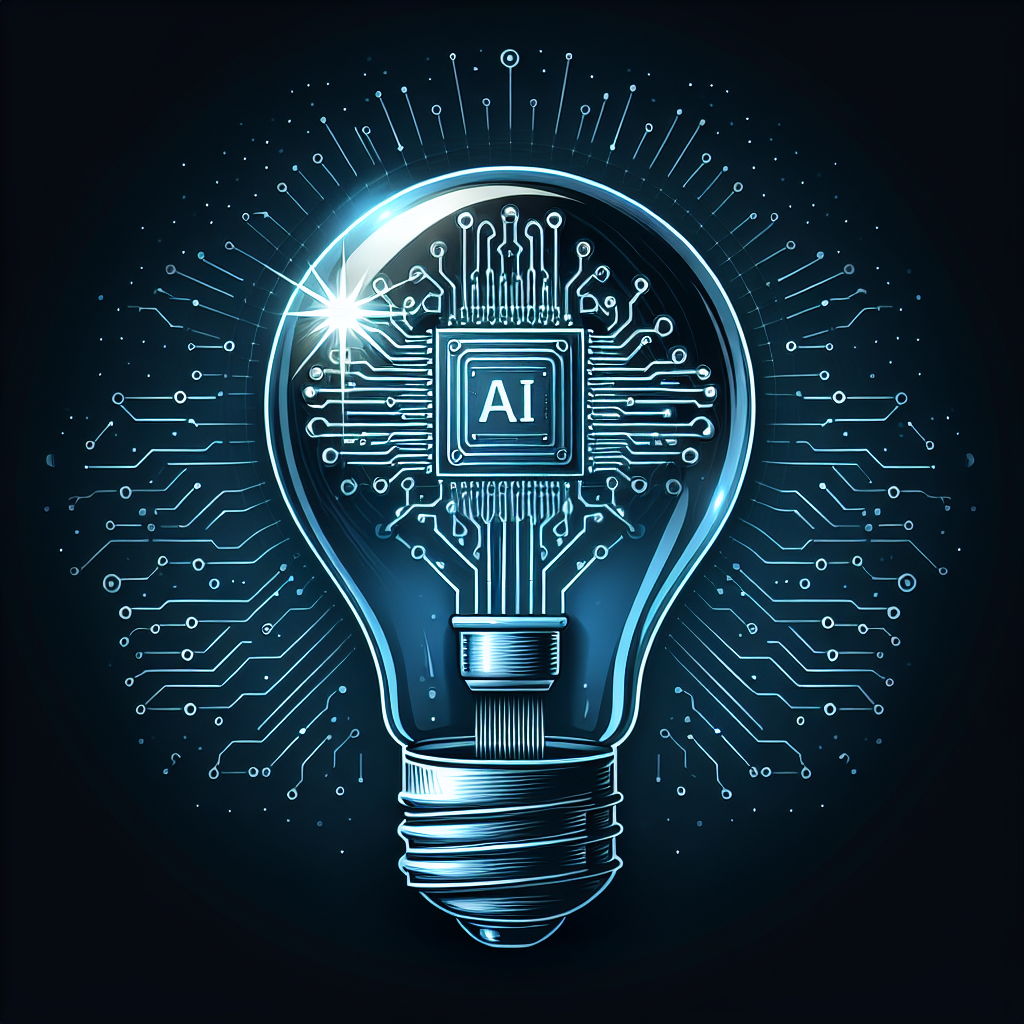Have you ever wondered about the genius behind the creation of artificial intelligence? The quest to unravel this mystery has puzzled many for years. Artificial intelligence, or AI, has become an integral part of our lives, revolutionizing industries and transforming the way we live. In this article, we will shed light on the early pioneers and innovative individuals who played significant roles in the development of AI. Get ready to embark on a journey through time as we uncover the fascinating origins of this groundbreaking technology.
Introduction
Artificial intelligence, often referred to as AI, is a field of computer science that focuses on the development of intelligent machines capable of performing tasks that would typically require human intelligence. From its early conceptualization to its present-day applications, AI has come a long way. In this article, we will delve into the origins of AI, explore the key contributors to its development, discuss the philosophy surrounding AI, highlight advances in machine learning and neural networks, examine expert systems, and explore the portrayal of AI in popular culture. We will also address ethical concerns and the future implications of AI, before diving into the debate over singular vs. multiple inventors. So, let’s embark on this journey into the fascinating world of artificial intelligence!
The Origins of Artificial Intelligence
Early Concepts and Influences
The foundations of AI can be traced back to ancient times when philosophers and thinkers pondered the nature of human intelligence. Prominent figures like Aristotle and Pythagoras contemplated the possibility of creating artificial beings that could mimic human thought processes and reasoning. However, it wasn’t until the advent of modern computing that these ideas started to take shape.
The Founding of the Discipline
In the 1950s, a group of pioneers established the foundations of AI as a distinguished discipline. This group included visionaries like Alan Turing, John McCarthy, Marvin Minsky, Allen Newell, and Herbert A. Simon, among others. Their revolutionary ideas and contributions laid the groundwork for the development of AI as a field of study.
The Dartmouth Conference
A significant milestone in the timeline of AI was the Dartmouth Conference in 1956. The conference, organized by John McCarthy and his colleagues, brought together researchers from various disciplines to explore the possibilities of AI. The Dartmouth Conference is often referred to as the birthplace of AI since it marked the beginning of focused research and collaboration in this nascent field.

Key Contributors to AI Development
Alan Turing
Alan Turing, a British mathematician and logician, is considered one of the founding fathers of AI. His theoretical work laid the groundwork for the concept of a universal machine capable of performing any computation. Turing’s concept of the Turing Machine, proposed in the 1930s, became a fundamental concept in modern computing and AI.
John McCarthy
John McCarthy, an American computer scientist, coined the term “artificial intelligence” and played a pivotal role in establishing AI as an academic discipline. He was instrumental in organizing the Dartmouth Conference and is widely recognized for his contributions to AI programming languages and machine learning.
Marvin Minsky
Marvin Minsky, an American cognitive scientist and computer scientist, made significant contributions to AI in the areas of computer vision and robotics. He co-founded the Massachusetts Institute of Technology’s (MIT) Artificial Intelligence Laboratory and pioneered research in artificial neural networks.
Allen Newell and Herbert A. Simon
Allen Newell and Herbert A. Simon, both American computer scientists, developed the Logic Theorist in 1956, a program that could prove mathematical theorems. Their work in symbolic AI and problem-solving laid the foundation for future advancements in AI programming.
Arthur Samuel
Arthur Samuel, an American computer scientist, is known for his work on machine learning and the development of the self-learning program, the Samuel Checkers-playing Program. This early application of machine learning demonstrated how computers could learn and improve their performance through experience.
Joseph Weizenbaum
Joseph Weizenbaum, a German-American computer scientist, is most famous for creating ELIZA, an early natural language processing program that simulated conversation. ELIZA pioneered the use of chatbots and raised philosophical questions about human-computer interaction.
The Philosophy of AI
Theoretical Foundations
The philosophical underpinnings of AI delve into questions about the nature of intelligence, consciousness, and the mind. AI researchers explore different philosophical theories, such as functionalism and behaviorism, to better understand how human-like intelligence can be replicated in machines.
Symbolic AI vs. Connectionism
One of the foundational debates in AI is the divide between symbolic AI and connectionism. Symbolic AI focuses on using logical symbols and rules to represent knowledge and reasoning, while connectionism emphasizes the interconnectedness of artificial neural networks as the key to achieving intelligence.
The Chinese Room Argument
The Chinese Room Argument, proposed by philosopher John Searle, challenges the notion that machines can genuinely understand and have consciousness. It poses the question of whether a computer program (represented as a person in a room following instructions) can truly comprehend the meaning of the Chinese language without understanding it.
The Turing Test
The Turing Test, devised by Alan Turing in 1950, assesses a machine’s ability to exhibit intelligent behavior indistinguishable from that of a human. This test has sparked ongoing discussions about the criteria for determining true artificial intelligence and the challenges in creating machines that can pass this test.

Advances in Machine Learning and Neural Networks
Frank Rosenblatt and the Perceptron
In the late 1950s, Frank Rosenblatt, an American psychologist, introduced the perceptron, a type of artificial neural network. The perceptron demonstrated the potential for machines to learn through trial and error, setting the stage for future advancements in machine learning.
The Birth of Backpropagation
Backpropagation, first introduced in the 1970s, revolutionized the field of neural networks by enabling more efficient and effective training. This technique allows errors to be propagated backward through the network, adjusting the weights of connections and improving the network’s performance.
The Neocognitron and Convolutional Neural Networks
In the 1980s, Kunihiko Fukushima developed the neocognitron, a hierarchical neural network capable of pattern recognition. This groundbreaking work laid the foundation for the development of convolutional neural networks (CNNs), which have since revolutionized the field of computer vision.
Deep Learning and Artificial Neural Networks (ANN)
Deep learning, a subfield of machine learning, has gained significant attention in recent years. It involves training deep artificial neural networks with multiple hidden layers, allowing them to automatically learn hierarchical representations of data. Deep learning has achieved remarkable success in various domains, including image and speech recognition.
Expert Systems and Knowledge Representation
Early Expert Systems
Expert systems emerged in the 1970s and 1980s as a practical application of AI. These systems aimed to mimic the decision-making processes of human experts in specific domains. Examples of early expert systems include MYCIN, an expert system for diagnosing bacterial infections, and Dendral, an expert system for chemical analysis.
Rule-Based Systems
Rule-based systems, also known as production systems, became a popular approach for building expert systems. These systems operated using a set of rules that dictated the system’s behavior and decision-making processes. Rule-based systems allowed for explicit knowledge representation and reasoning.
Knowledge Engineering
Knowledge engineering played a crucial role in the development of expert systems. Knowledge engineers collaborated with domain experts to acquire and encode knowledge into computer systems. This process involved capturing expert knowledge, transforming it into a knowledge-based system, and continually refining and updating the system.
Knowledge Representation and Reasoning
The representation of knowledge and reasoning methods are vital components of AI systems. Different approaches to knowledge representation, such as semantic networks, frames, and ontologies, have been explored to enable machines to effectively understand and utilize information. Reasoning methods, such as logical reasoning and probabilistic reasoning, allow AI systems to make informed decisions and solve complex problems.
AI in Popular Culture
Science Fiction and AI
Science fiction has long explored the concept of AI, often depicting both the positive and negative impacts it can have on society. Works like Isaac Asimov’s “I, Robot” and Philip K. Dick’s “Do Androids Dream of Electric Sheep?” have explored themes of human-like robots and the ethical dilemmas they present.
Movies and TV Shows
AI has been a popular theme in movies and TV shows, captivating audiences with tales of advanced robots and sentient machines. From classics like “2001: A Space Odyssey” to modern blockbusters like “Ex Machina” and “Her,” these portrayals have fueled public interest and shaped our perceptions of AI.
AI in Literature
Literature has also delved into the possibilities and consequences of AI. Books like William Gibson’s “Neuromancer” and Richard Powers’ “Galatea 2.2” have explored the intersection of AI and human consciousness, pushing the boundaries of what it means to be intelligent.
AI in Video Games
AI plays a crucial role in the development of immersive virtual worlds and video games. Game developers utilize AI techniques to create lifelike non-player characters (NPCs) capable of interacting with players in dynamic and realistic ways. These AI-driven experiences enhance gameplay and create memorable gaming moments.
Ethical Concerns and the Future of AI
AI Ethics and Bias
The rapid advancements in AI have raised concerns about ethics and bias in the development and deployment of AI systems. Questions surrounding privacy, data security, algorithmic biases, and the impact on job markets require careful consideration and regulation to ensure responsible AI development.
The Technological Singularity
The concept of the technological singularity refers to a hypothetical point in the future when AI surpasses human intelligence, leading to exponential progress and unpredictable outcomes. This idea has sparked debates about the risks and benefits of creating superintelligent machines.
Superintelligence and Existential Risk
The notion of superintelligent AI, surpassing human capabilities in all cognitive tasks, poses existential risks to humanity. Experts caution against the potential unintended consequences of creating machines that could outsmart humans and suggest the need for comprehensive safety precautions.
AI in the Workforce
The integration of AI systems in the workforce raises concerns about job displacement and the changing nature of work. While AI can automate repetitive and mundane tasks, it also creates opportunities for new types of jobs and requires reskilling and upskilling of the workforce to adapt to the evolving job market.
The Debate over Singular vs. Multiple Inventors
Exploring Different Perspectives
The origins of AI have sparked a longstanding debate over whether it can be attributed to a singular inventor or if it evolved through the contributions of multiple individuals over time. This debate delves into the complexities of intellectual collaboration, the collective nature of scientific progress, and the challenges of pinpointing a definitive inventor.
Controversies and Claims
Throughout the history of AI, there have been controversies and claims surrounding the rightful attribution of specific breakthroughs and inventions. Disputes over who deserves credit for certain advancements demonstrate the interconnectedness of ideas and the fluid nature of innovation in AI.
Conclusion
Artificial intelligence has come a long way since its conceptualization, thanks to the contributions of pioneering individuals, technological advancements, and philosophical debates. From the early origins to the present, AI has transformed the way we live, work, and engage with the world. As AI continues to evolve, there is a need for robust ethical frameworks, responsible development practices, and ongoing discussions to shape its path towards a future in which humans and machines coexist harmoniously. So, embrace the possibilities of AI and prepare for a world where intelligent machines are an integral part of our lives!
